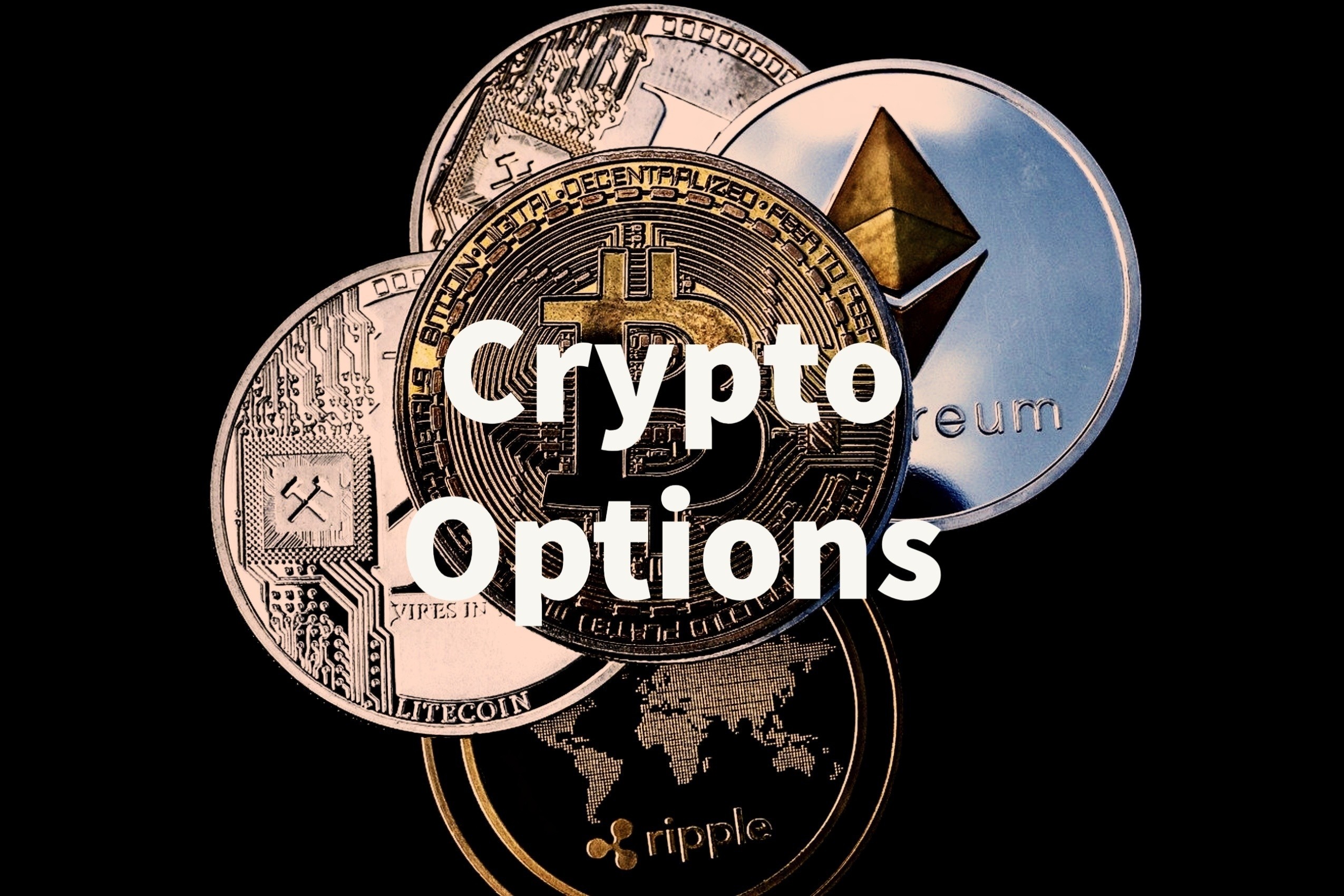The cryptocurrency market and exchanges, in particular, have made Cryptocurrency Futures and Options contracts more accessible to crypto traders.
Just last year, the trading volume for Bitcoin and Ethereum Options rose to a mouth-watering value of $387 billion.
Most traders use these products to hedge the risk of their open positions or get a larger ROI from their investment. Trading crypto Futures is more cost-effective due to the allowance of a large amount of leverage (as high as 125x on certain products).
Options trading, on the other hand, has a lower amount of risk associated with them.
What Are Crypto Futures?
The concept of Futures was originally created to reduce price volatility in the agriculture markets so that the farmers can have contracts to buy their seeds or sell their crops at a previously agreed price.
Derived from the original concept, a Futures contract has become commonplace in the cryptocurrency trading domain.
When you enter into Cryptocurrency Futures contracts, you then must buy or sell the underlying assets at the agreed price as per the expiry date. Futures contracts make up a large chunk of the derivatives trading market.
With Futures contracts, you can get exposure to a cryptocurrency and not purchase it. Its current value is linked to and derives from the value of the underlying asset itself, so futures tend to be less risky and can help you limit your maximum loss.
For the sake of this article, take that Bitcoin’s current market price is $16,000. If you think that the price of a specific asset is going to go up, you would buy a Bitcoin Futures contract at this price.
If the price does go to $20,000 when your derivative contract expires, your Futures contract gives you the obligation to buy Bitcoin at the originally agreed price of $16,000. This means you make a $4,000 profit in the Futures market.
With the same example, if the price goes to $15,000 as the expiration date draws closer, you will still need to buy Bitcoin at $16,000 hence incurring a loss of $1,000.
Types Of Crypto Futures Contracts
If you are getting into trading crypto Futures based on trading signals you might be getting from your favourite influencer, you should understand the way most Futures markets function.
The first level of classification is linear and inverse contracts, where a linear contract has a direct correlation between the asset’s price action and the contract’s quoted value. For an inverse futures contract, the payoff structure for your position is non-linear.
Within these, you have perpetual, monthly, quarterly, and semiannual contracts available where the name is associated with the contract’s expiration date.
Getting started with perpetual trading? Know the difference between Crypto Perpetuals vs Quarterly Futures
The maximum liquidity is contained in the perpetual contract market as the positions can be held for a long time by only continuing to pay the funding fees.
The denomination of a crypto futures contract is also important, and you can either trade one denominated in USD or one that is settled against another cryptocurrency like Bitcoin or Ethereum.
- USD-Margined Futures Contracts
When you trade Futures contracts denominated in USD or other associated stable coins like USDT, USDC, or BUSD, amongst others, then the contracts are settled in the same coin.
The major Futures market offers these in both delivery and perpetual contracts where you can either take delivery of the coin after the expiration date if you have made a delivery contract or hold the position indefinitely until it reaches a predetermined price if it is a perpetual contract.
- Coin-Margined Futures Contracts
These kinds of Futures contracts are settled in various major cryptocurrencies like Bitcoin and Ethereum. These contracts track the movement of your underlying asset against Bitcoin or Ethereum rather than a stablecoin.
The major Futures market offers this type of Futures trading with both deliverable and perpetual contracts that work as mentioned above.
Both these kinds of contracts also allow the use of leverage as high as 125x, which can work to benefit a good trader, but the reckless use of which can also sink a Futures buyer very quickly.
When the leverage is that high, a small amount of price movement against you in the underlying commodity will lead to the liquidation of your position.
What Are Crypto Options?
Crypto Options trading gives you the right but not the obligation to buy or sell the underlying asset before a specific date and for a specified price which is also called the strike price. Trading Options do not require any actual ownership of the asset, just like Futures contracts.
You can thus profit from market movements without needing to buy or sell the cryptocurrency itself. Just like deliverable Futures contracts, Options contracts also have an expiry date before which the contract must be settled.
You have to pay upfront the premium on the Options contract, and the maximum potential loss is the premium paid for buying the contract.
This premium will vary depending on how much time is left on the contract, the underlying asset’s volatility, and the current price of the Options contract.
Most market participants tend to buy Options contracts from the market, but if you have a risk appetite, you can opt to sell an Options contract. In this case, you would pocket the premiums paid by the buyers.
To be this person in the Options market, you will need to pay collateral, aka an option margin, before you can start selling Options.
Most traders will opt to own the underlying asset before selling an Options contract so that they can fulfil the obligation if the market price goes against them.
In the case that you do not own any of the financial instruments whose contract you are selling, it is what is referred to as an ‘uncovered’ or ‘naked’ option.
As the price of the underlying asset can go as high or as low as possible, the theoretical loss, in this case, has no upper limit.
Take, for example, that you buy a Bitcoin Call option at $16,000 for a $300 premium that expires in one month. This gives you a chance to buy 1 Bitcoin for $16,000 in the next month.
If the price goes above what you bought, you can sell the option and take your profit minus the paid premium. If the price drops below what you bought the contract at, you can let it expire and lose only the premium.
Types of Crypto Options Contracts
Crypto Options trading comes with two different types of contracts, i.e. American and European contracts.
The American variant can be exercised any time before it expires, whereas the European variant can only be fulfilled once the expiry date is reached.
The type of contract you choose will depend largely on your crypto exchange. If both of them are available, then you should choose wisely depending on how certain you are about the direction of the market or the amount of risk you are willing to take.
The other types of contracts in the Options market are Cash-Settled vs Physically-settled. In the cash-settled variant, any favourable settlement is done with the cash equivalent of the asset.
In the physically-settled Options trading variant, a favourable settlement is done by using the asset itself to execute the contract.
Are there Options in Cryptocurrencies?
More and more cryptocurrency exchanges like Binance and ByBit are now allowing their customers to buy or sell Futures and Options contracts. This is in a bid to become more mainstream and attract investors looking to hedge their positions and play it safe.
As mentioned above, Options trading allows users to cover their existing risks while increasing the profit margin with a smaller initial margin.
The premium is low compared to the position you take ($300 premium to take a $16,000 position in Bitcoin); you can control a large position and hence larger profits with smaller contract units.
So, yes, Options are there in cryptocurrencies, and this market has only grown in leaps and bounds over the last couple of years.
Similarities of Crypto Options and Futures
Both Options and Futures are derivatives meaning that they ‘derive’ their value from that of the asset that they are based on.
The derivatives market can have multiple financial instruments that can be traded, including stocks, commodities, or cryptocurrencies.
The option to have Cash-settled and Physically settled Futures and Options is another similarity between the two types of derivatives.
Both of these do not give you ownership over the asset whose price movement you are betting on. This is supposed to be a pro as you never have to buy the cryptocurrency to be able to profit from the high volatility and price action of the space.
Differences between Crypto Options and Futures
Crypto Options give you a choice but not an obligation to buy or sell a cryptocurrency at your agreed price before the expiration date. For this agreement, you will pay the exchange a small premium to buy the contract.
Unlike Options contracts, a Futures contract requires you to buy or sell a cryptocurrency at the agreed price when the contract expires. Futures trading does not make you pay a premium to buy and sell Futures contracts.
The key difference is that Options are considered to be for investors that have a smaller risk appetite as the maximum loss you can take is the premium you have already paid.
This is because if there is a price decline while you were expecting a price rise, you can just not exercise your option and let it expire. You can do this with Options, as you have the option and not an obligation to buy and sell the asset at an agreed price.
Conclusion: Crypto Futures vs Options Trading – Which strategy is better?
The answer to this question largely depends on your trading strategy, how much risk you are okay to take, and whether you are looking to take a larger position owing to leverage.
Futures and Options might seem to be close to each other in terms of both being derivative contracts, but they are vastly different products in terms of how they are used by traders.
While Futures offer you a large return on investment because of using high leverage, the Options market is a comparatively low-risk market.
Because of these differences, you must understand the concept of risk management before putting any money on the line.
Want to start with Futures Trading? Learn How much money do you need to trade Crypto Futures?


